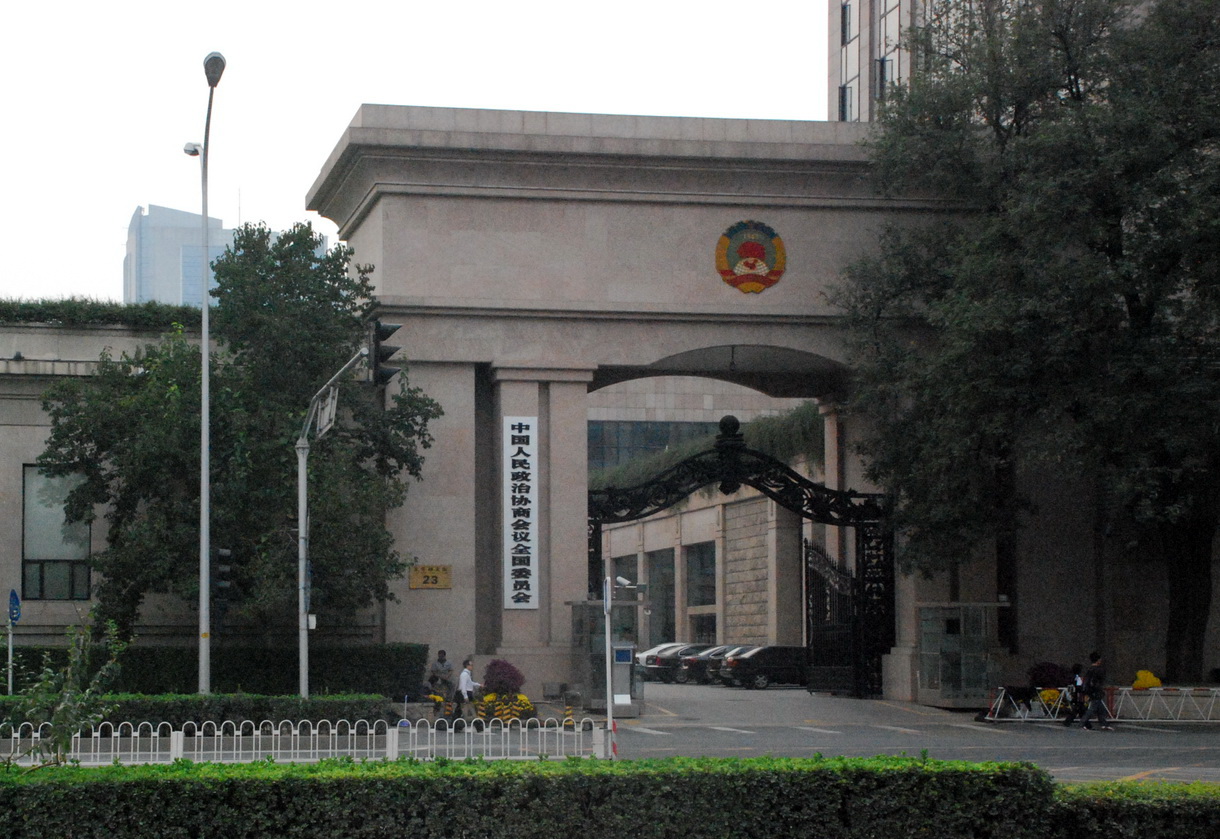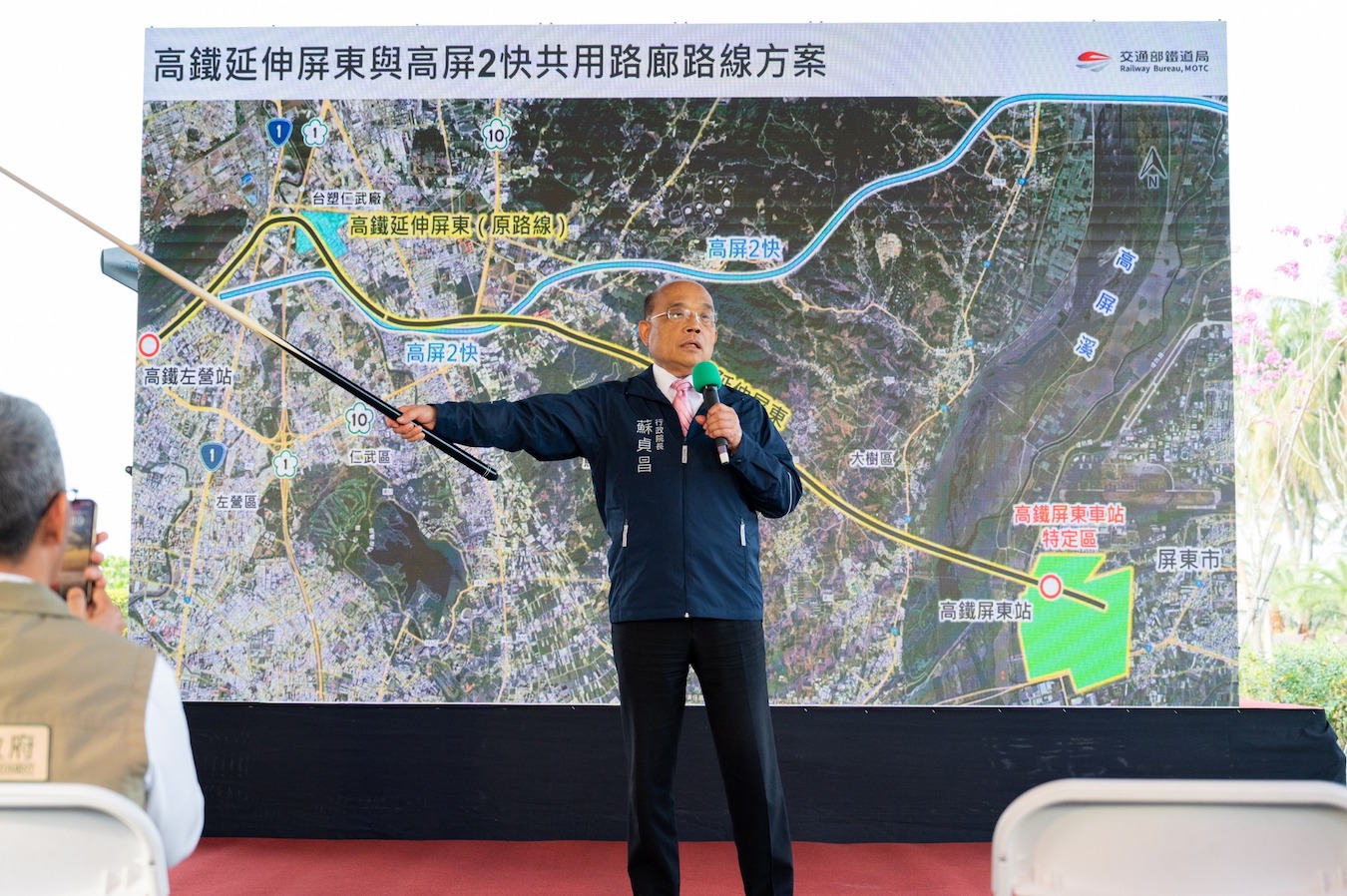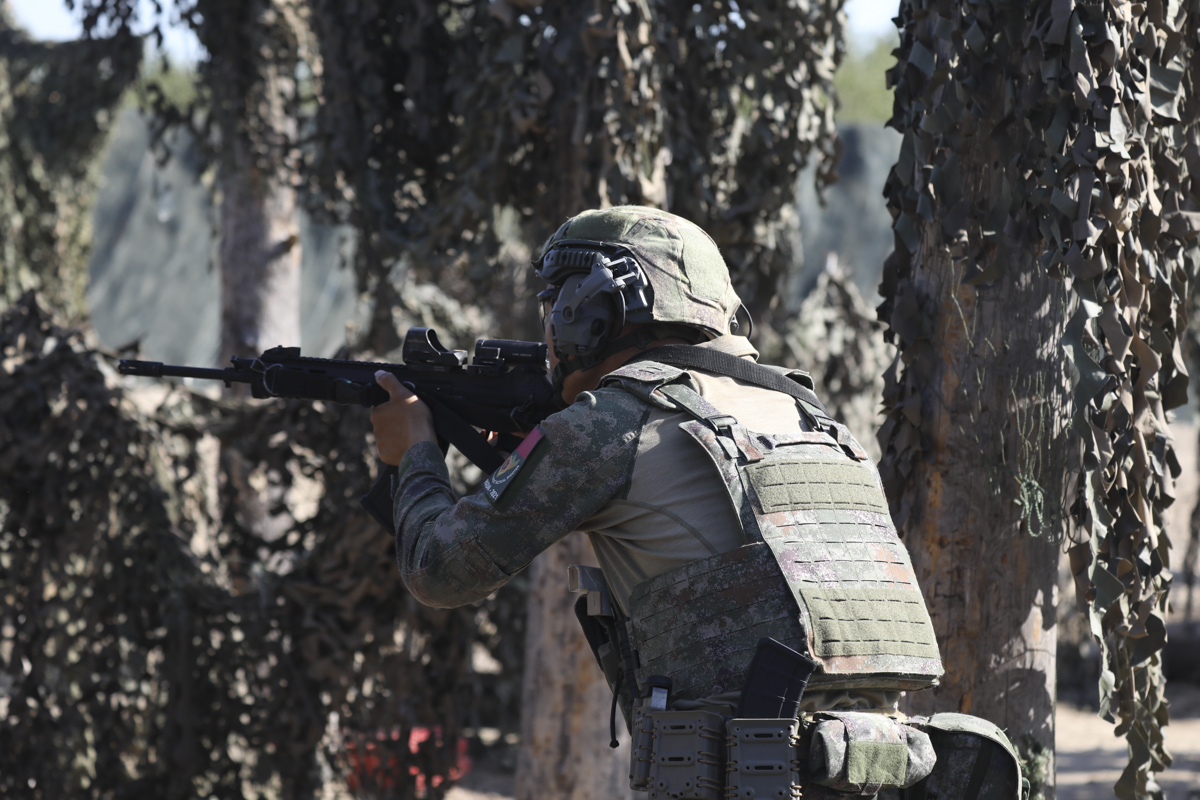by Brian Hioe
語言:
English
Photo Credit: US Marine Corps/Public Domain
CHINESE NATIONALIST essayist and blogger Zhou Xiaoping recently proposed a resolution at a session of the Chinese People’s Political Consultative Conference (CPPCC) for China to draw up a list of “Taiwanese separatists” to be killed during a “Special Military Operation” to take Taiwan. Zhou later claimed that the resolution had been adopted, though this could have been a way for Zhou to claim his own political relevance.
Clearly, the intent was shock value. In an invasion, it is improbable that the Chinese military would not have a list of high-profile targets to kill. However, the resolution is the latest of a number of lists that the Chinese government has suggested it would draw up of independence advocates in the past.
For example, given that many Taiwanese businesses operate in China, the Chinese government has suggested in the past that it would draw up a list of “pro-independence” businesses to sanction. In 2021, perhaps hoping to convey a sense of acting on this threat, China fined Asia Cement and the Far Eastern Group over environmental and labor violations by the two companies by framing them as “pro-independence”.
 The building housing the National Committee of the Chinese People’s Political Consultative Conference. Photo credit: 高晶/Public Domain
The building housing the National Committee of the Chinese People’s Political Consultative Conference. Photo credit: 高晶/Public Domain
One notes that it would be strange to accuse the Far Eastern Group of being “pro-independence.” Far Eastern Group donates to both the KMT and DPP alike, but founder Douglas Hsu is generally seen in Taiwan as sympathetic to the pan-Blue camp, and Far Eastern is also perceived as more supportive of the KMT. It is possible that Beijing simply tried to frame environmental and labor violations by the two companies–something that would be unsurprising given the environmental record of the two companies in Taiwan, Southeast Asia, and elsewhere–as the two companies somehow being “pro-independence.”
Certainly, Beijing has sought to dangle the threat of shutting out Taiwanese companies from the lucrative Chinese market over their political views in past years. Import bans targeting products ranging from Taiwanese beverages to seafood and fruit products may be intended with a similar effect, perhaps hoping to encourage these companies to promote the pan-Blue camp. But as many of these companies targeted are far from pro-independence, one wonders if overly scattershot measures would not simply have the opposite effect and discourage Taiwanese companies from investing in China–with the view that China is a politically risky market in which they may be arbitrarily targeted just for being Taiwanese.
At other points, Beijing has suggested targeting individuals, which is more similar to Zhou’s proposal. In 2020, Hong Kong’s Ta Kung Pao reported that Beijing was planning on drawing up a list of Taiwanese independence advocates to sanction, ban from traveling to China, or otherwise direct Magnitsky-style sanctions at.
This was during the same time period that Taiwanese human rights advocate Lee Ming-che was imprisoned in China and news reports emerged of Taiwanese that had gone missing in China, and were imprisoned over political charges. As such, this raised the danger of China targeting Taiwanese residing in or traveling in China. That one of the disappeared Causeway Bay booksellers, Gui Minhai, was kidnapped in Thailand also raised the specter of China working with countries that it has good relations with to kidnap Taiwanese there. Namely, this was unlikely to have happened without the tacit or implicit cooperation of Thai authorities. Otherwise, Taiwanese could be targeted for transferring or passing through Chinese airports or airports in Hong Kong and Macau.
 Former premier Su Tseng-chang. Photo credit: Su Tseng-chang/Facebook
Former premier Su Tseng-chang. Photo credit: Su Tseng-chang/Facebook
Nevertheless, once again, China’s measures targeting Taiwanese appeared to be too scattershot. Among those China had detained included pan-Blue pro-unification advocates.
What is perceived as pro-independence in China often differs substantially from what is understood as pro-independence in Taiwan. Among the most famous instances of this was when Chou Tzu-yu, the Taiwanese member of Korean girl group TWICE, was made to apologize for waving the ROC flag in a promotional video because this was perceived as a pro-independence statement by Chinese nationalist netizens. So it is, then, that even advocates of unification in Taiwan can perhaps be misread and imprisoned as independence advocates in China.
In November 2021, China announced a ban on high-profile Taiwanese officials, then-serving Premier Su Tseng-chang, Minister of Foreign Affairs Joseph Wu, and Legislative Yuan president Yu Shyi-kun, preventing them and their relatives from traveling to China or doing business in China. One imagines this would have little effect–the three DPP politicians would certainly already know better than to try.
Yet, because of the impossibility of drawing up a list of all Taiwanese supportive of independence–one wonders what the definition or boundary independence be defined as, for one, and how to gather such information on political views often in flux–China may have just sought to target several well-known individuals. This would be to set an example for others. As pan-Green businesses do operate in China and, despite supporting maintaining Taiwan’s de facto independence have no ideological opposition to doing so, China may have also sought to frame DPP politicians as hypocritical in secretly doing business with China while criticizing the pan-Blue camp when they do business with China.
This is probably more of the same with Zhou’s proposal, then. More dangerous would perhaps be China publicly announcing a list of pro-independence separatists it aims to kill ahead of an invasion–as if putting bounties on them, perhaps in the hopes that a pro-unification sympathizer in Taiwan will act on such threats. Certainly, pro-unification organized groups in Taiwan with links that act as Beijing’s proxies in Taiwan may act on this, with individuals such as Joshua Wong or student pro-independence demonstrators among those targeted with physical violence in the past.
 Photo credit: Mil.ru/CC BY 4.0
Photo credit: Mil.ru/CC BY 4.0
Either way, it is improbable that Zhou’s proposal would not provoke backlash in Taiwan–pushing Taiwan further away from China. This is a way in which nationalist bluster and threats of violence from China often have the opposite effect, rather than cowing Taiwan. This can be quite visibly seen in the uptick in Tsai Ing-wen’s approval rating after Xi Jinping’s 2019 speech in which he vowed that force was still on the table for reunifying Taiwan and China. One saw similar with Taiwanese reactions to the invasion of Ukraine by Russia, in which Taiwanese could see sharp parallels to Taiwan’s situation–indeed, with the framing of the killings as during a “Special Operation” by Zhou, the attempt was clear to raise direct comparison to Ukraine.
Regardless, news about Zhou’s proposal has scarcely registered in the Taiwanese news spectrum. What occurs in China simply occurs at a remove from Taiwan and is not always picked up upon, due to that China is another country entirely for most Taiwanese. And yet, that China’s measures targeting individuals it claims to be pro-unification in the past have been scattershot should also go to show they could be targeted as well in such a hypothetical scenario.

